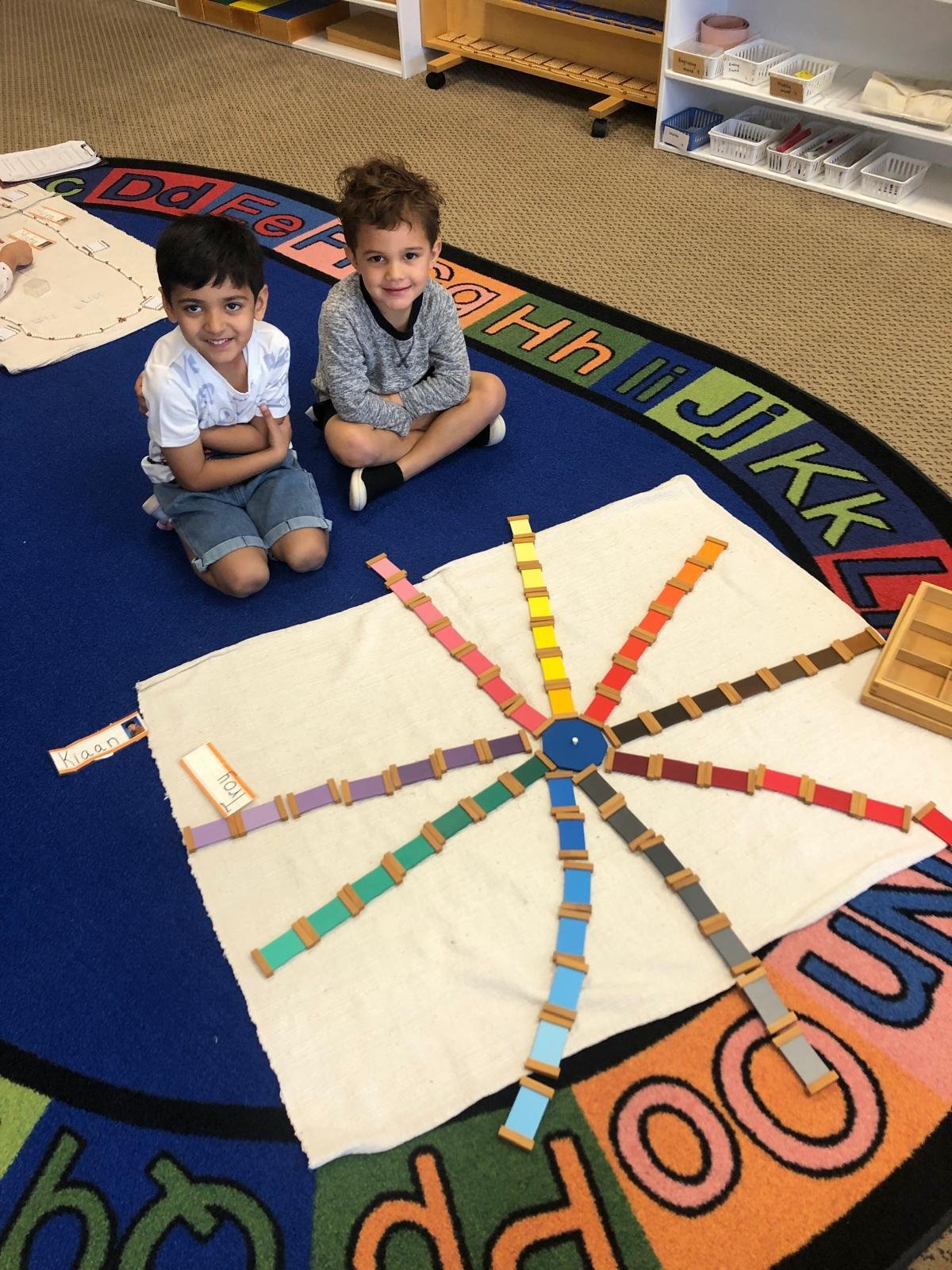Primary Program
Primary Program
Montessori Primary Curriculum (ages 3 - 6 years of age)
The Montessori approach allows children to learn through understanding, rather than through being told. From this understanding the child is able to develop confidence and a joy in learning.
The Montessori classroom is a “prepared environment” that encourages individual growth and learning. Children can move about the room being guided and selecting from a wide assortment of designed materials stored on well-organized shelves. They develop practical and intellectual abilities through individual exploration of language, mathematics, geography, geometry, art, music and more. Parents new to the world of Montessori always remark on how quiet the classroom is, how beautiful it looks, and how focused the children are. This is because they are concentrated on the “work” of learning.
Below are the areas of the Primary Curriculum which include the following:
-
Simply put, Practical Life activities are the activities of everyday life. The child observes these activities in the environment and gains knowledge through the real experience of how to accomplish life skills. These activities are cultural and specific to the child's time and place. Practical life activities help build concentration, focus and eye hand coordination. Through practical life activities, the child learns how care for himself, his belongings as well the space he works in. Practical Life exercises help children to become self-confident, independent and prepare them for other aspects of learning.
These activities revolve around four areas:
Fine Motor Development
Care of Self
Care of Environment
Grace and Courtesy
-
Maria Montessori believed that nothing comes into the mind except through the senses. During the years between three and six, as children develop their senses, their attention is directed toward the environment. The purpose of the Sensorial activities is to help the child in his efforts to sort out the many impressions given by the senses. These materials are specifically designed to help the child develop discrimination, order, and to broaden and refine the senses. These materials also help prepare him to be a logical, aware, and perceptive person. The Sensorial materials are designed with a built in feed back of control of error to show when mistakes have been made. The child thus remains independent of oversight and develops an inner incentive to practice and improve.
Visual discrimination
Tactile Sense
Auditory Sense
Olfactory Sense
-
Through every conversation, every book read aloud, every new word that is taught, the Montessori student is learning language, and thus, learning to read and emphasis is placed on the process of acquiring language. The Montessori preschool classroom emphasizes spoken language as the foundation for all linguistic expression. Throughout the entire Montessori environment the child hears and uses precise vocabulary for all the activities. The child is encouraged to converse with peers and staff. The children begin learning letters by their sound, not by the name of the letter. They move on to forming words with the “moveable alphabet” and then to forming simple sentences, reading these as well as creating them. The children then move into handwriting on a one to one ratio with the teacher. The concrete materials, from the sandpaper letters to the reading books, allow the child to take small, logical, sequential steps to independent, fluent reading.
Oral Language
Pre-language skills
Sorting
Sequencing
Patterning
Sandpaper Letters
Sorting objects by beginning sound
Blending sounds
Three letter words – Consonant Vowel Consonant
Sight words
Oral Language Exercises
Enrichment of Vocabulary
-
Learning mathematical concepts in a Montessori classroom begins concretely and progresses towards the abstract, from simple to complex. The child using these materials experiences order, coordination, concentration, and independence. A child that is able to grasp such math concepts as addition and subtraction demonstrates the successful use of the math materials. The materials are so beautifully designed and appropriate for each child during his sensitive periods of learning math. Mathematical material provides the necessary stimulation for the child to learn math concepts more readily. The math activities are organized into five groups.
0-10 Lesson Plans
Decimal Lesson Plans
Linear Counting Lesson Plans
Addition/Subtraction/Multiplication/Division
Paths to Abstraction
-
The Montessori science curriculum seeks to cultivate children’s natural curiosity and to allow them to discover the answers to their “why” questions. As with the other areas of the curriculum, science study concentrates on process, in this case, it teaches them to think before deciding. The science curriculum aims to provide each child with a basic knowledge of: zoology, botany and astronomy. It encourages respect for the world that we have been given and an understanding of our place in the natural order of things.
Living/Non-living
Plants & Animals
Vertebrates & Invertebrates
Animal classification
Parts of tree/leaf/Flower/Bird/Horse/Butterfly/Fish/Frog/Turtle
Life cycles of fruits/animals
Herbivore, Carnivore, Omnivore
-
In the Geography curriculum, they can touch a sphere and compare the shape to the globe. The children learn about the seven continents on our planet Earth. Montessori world puzzle maps are meant to be taken apart and put back together again as children develop an understanding of continents and oceans. These Montessori hands-on activities build long-term memory by physically engaging the hand. Discoveries are made about the people who live on different continents. Montessori students learn about food, music, clothing, traditions, holidays, customs, housing, as well as the plants and animals of the region as they compare their lifestyles to others. They learn about the flags of the world and reverently carry them as they “walk the line” in the Montessori prepared environment.
Land, Air & Water
Globe
World Map
All continents
United States of America
Capitals
Land/Water Forms
-
Our Primary Art Curriculum builds on the foundation provided in the Practical Life curriculum. Our students display a reasonable control of movement, fine motor skills and eye/hand coordination, having been encouraged to express themselves in artistic ways.

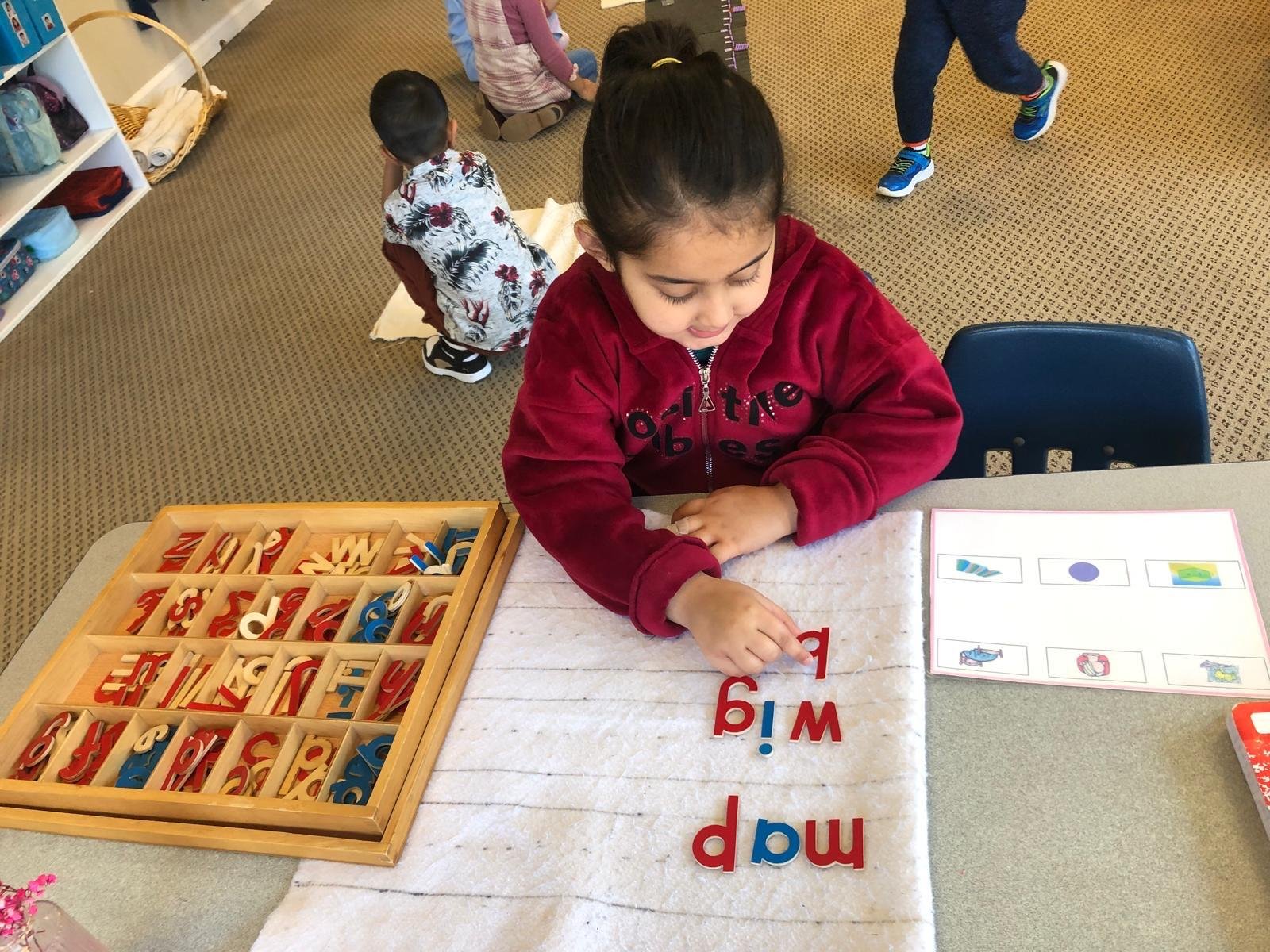
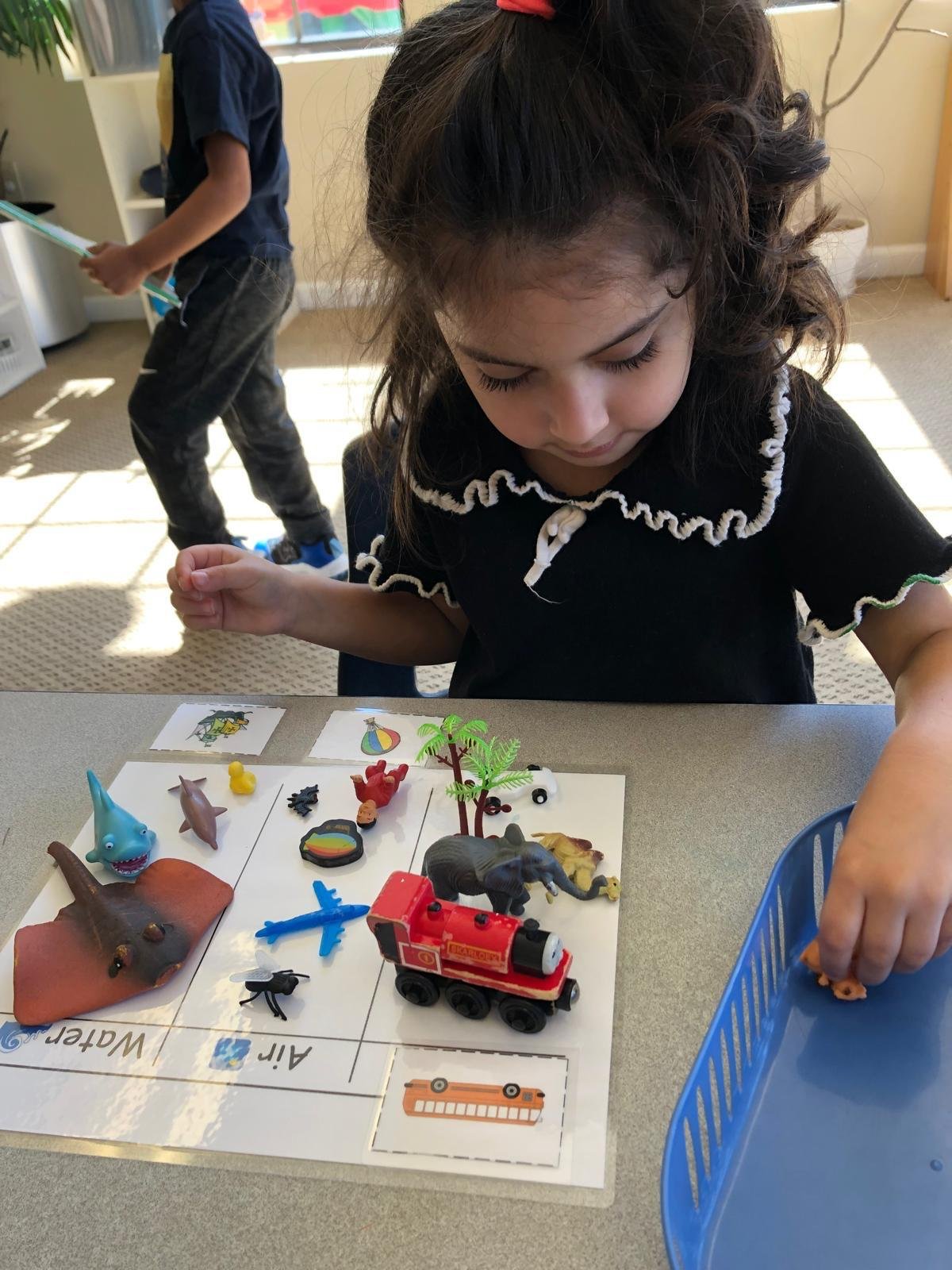
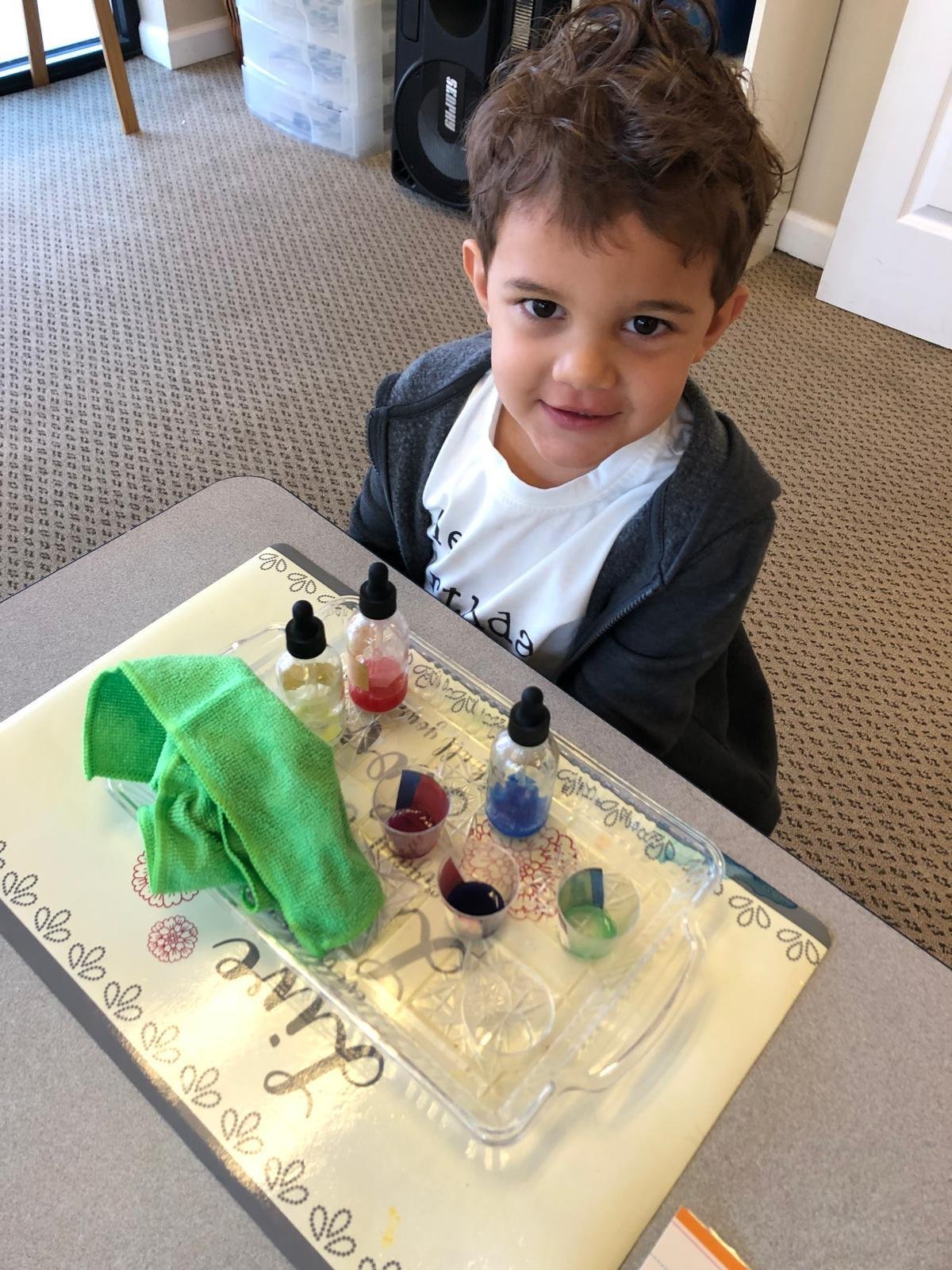
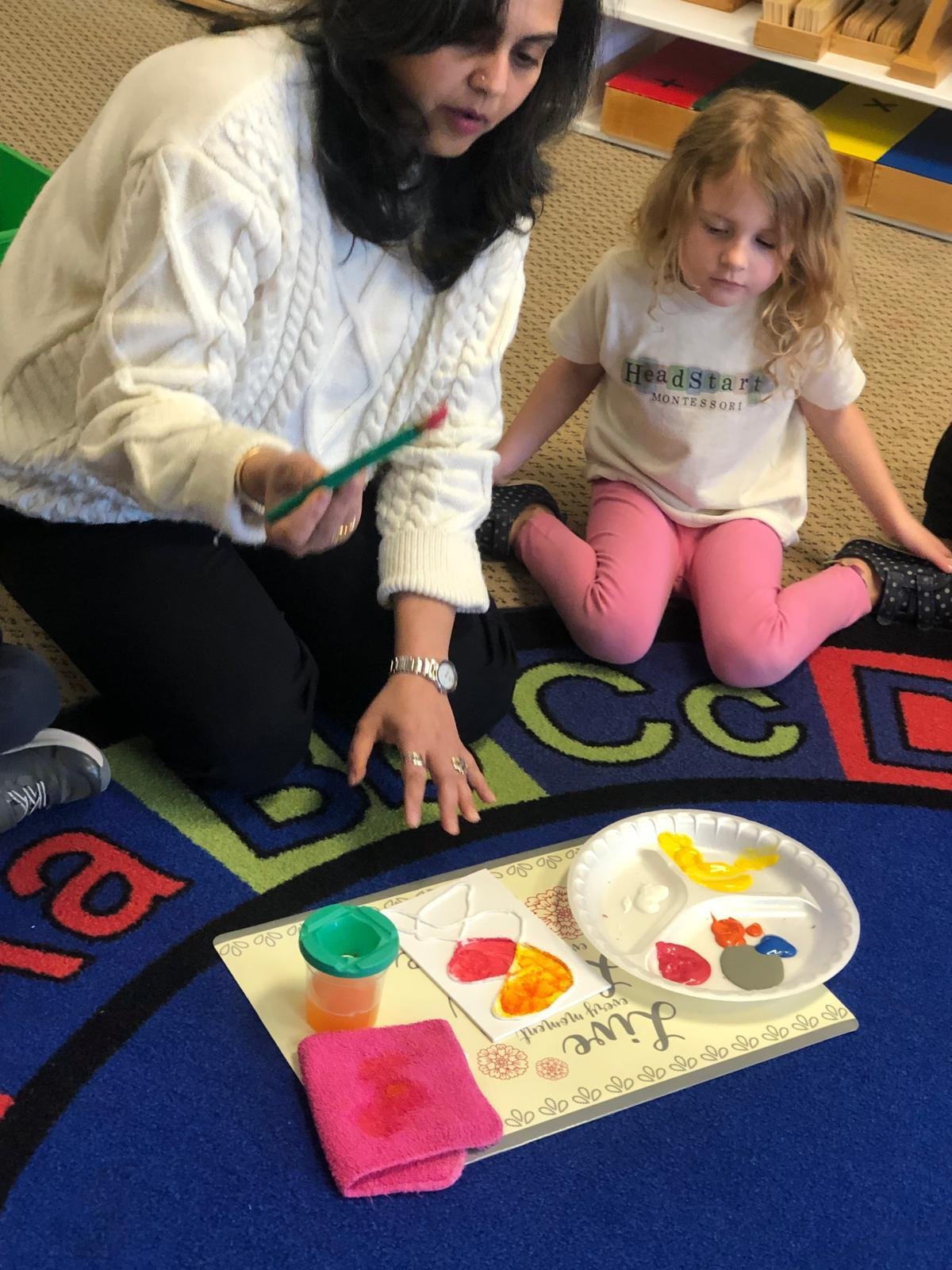
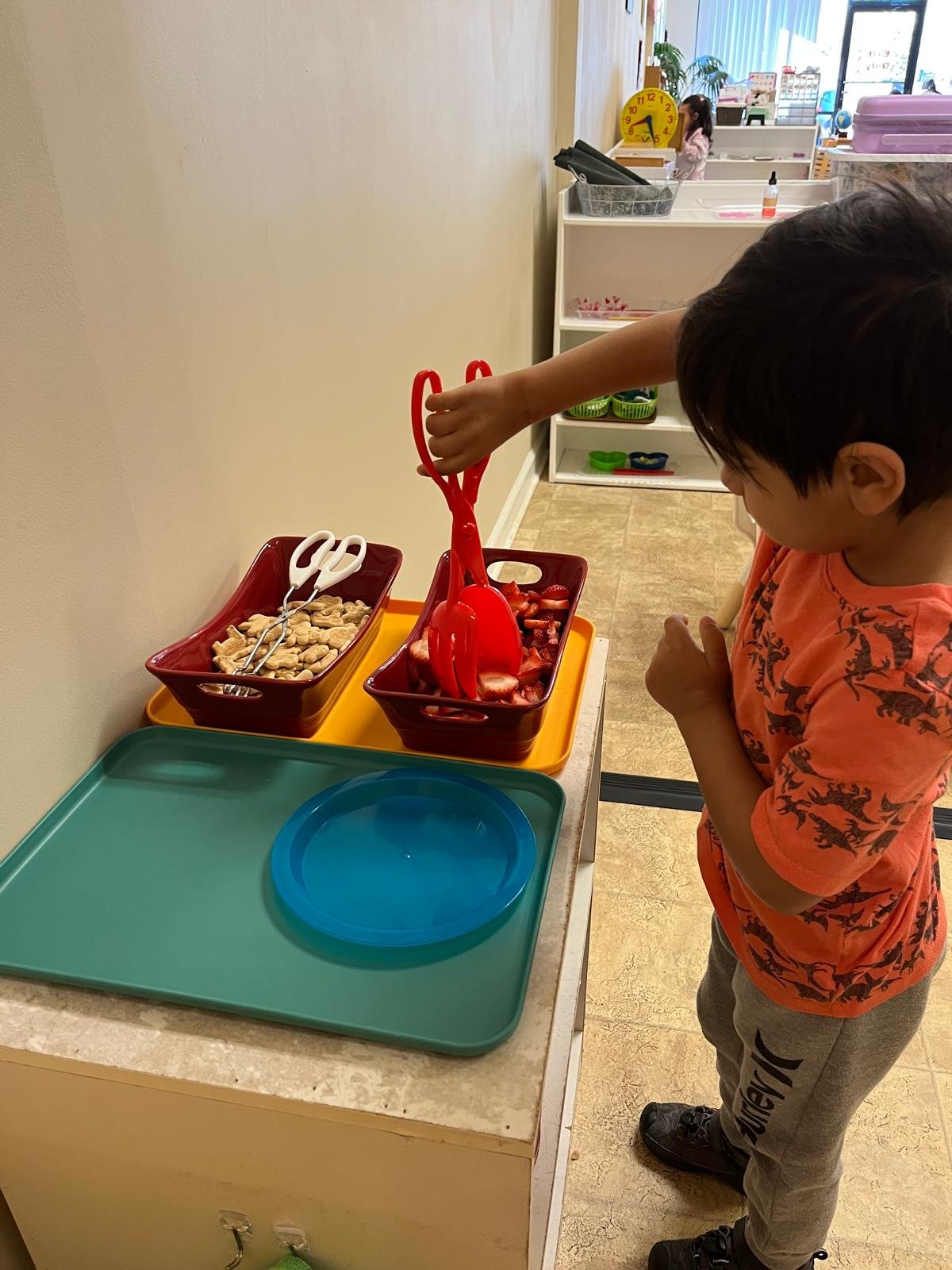
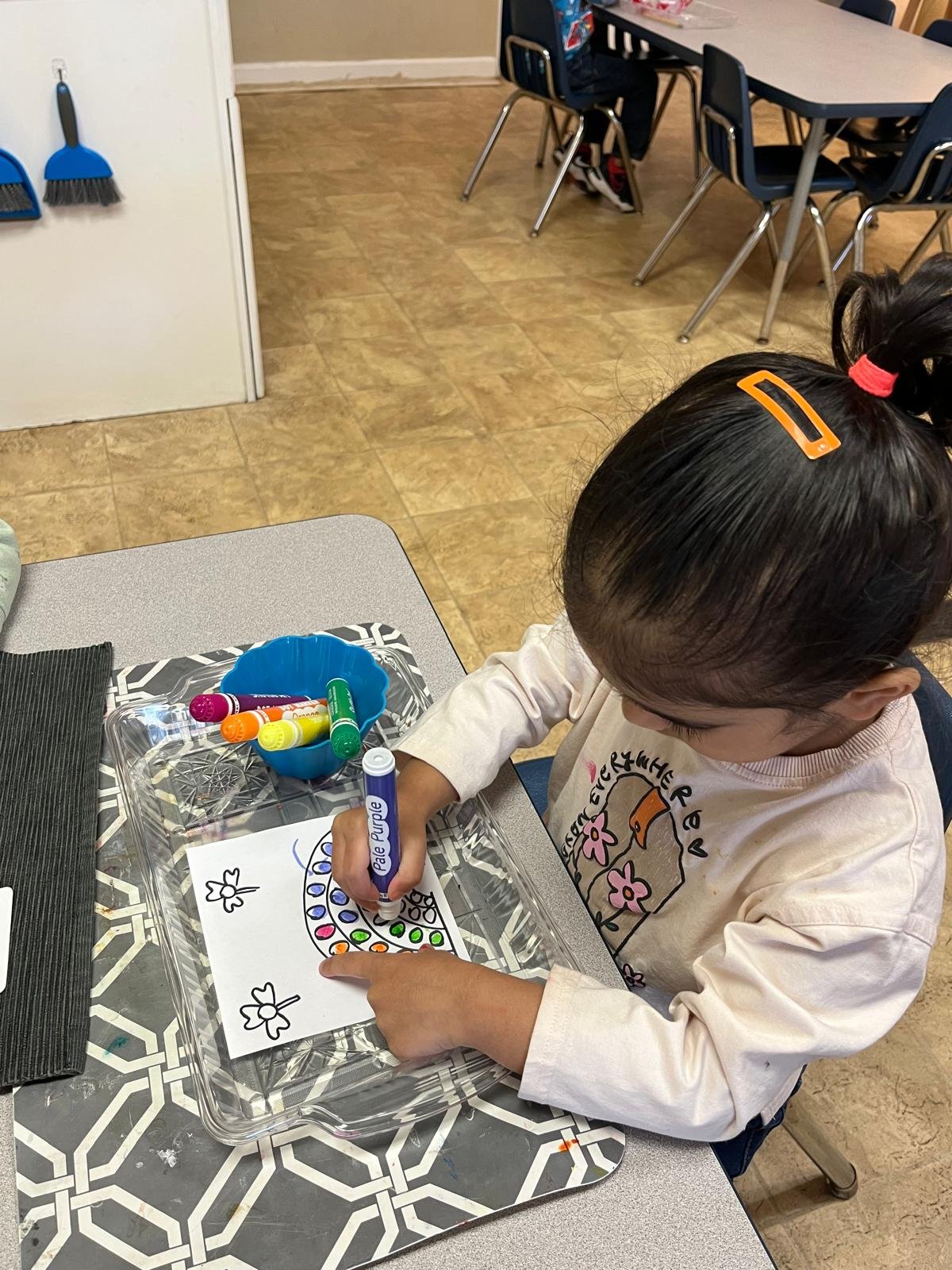

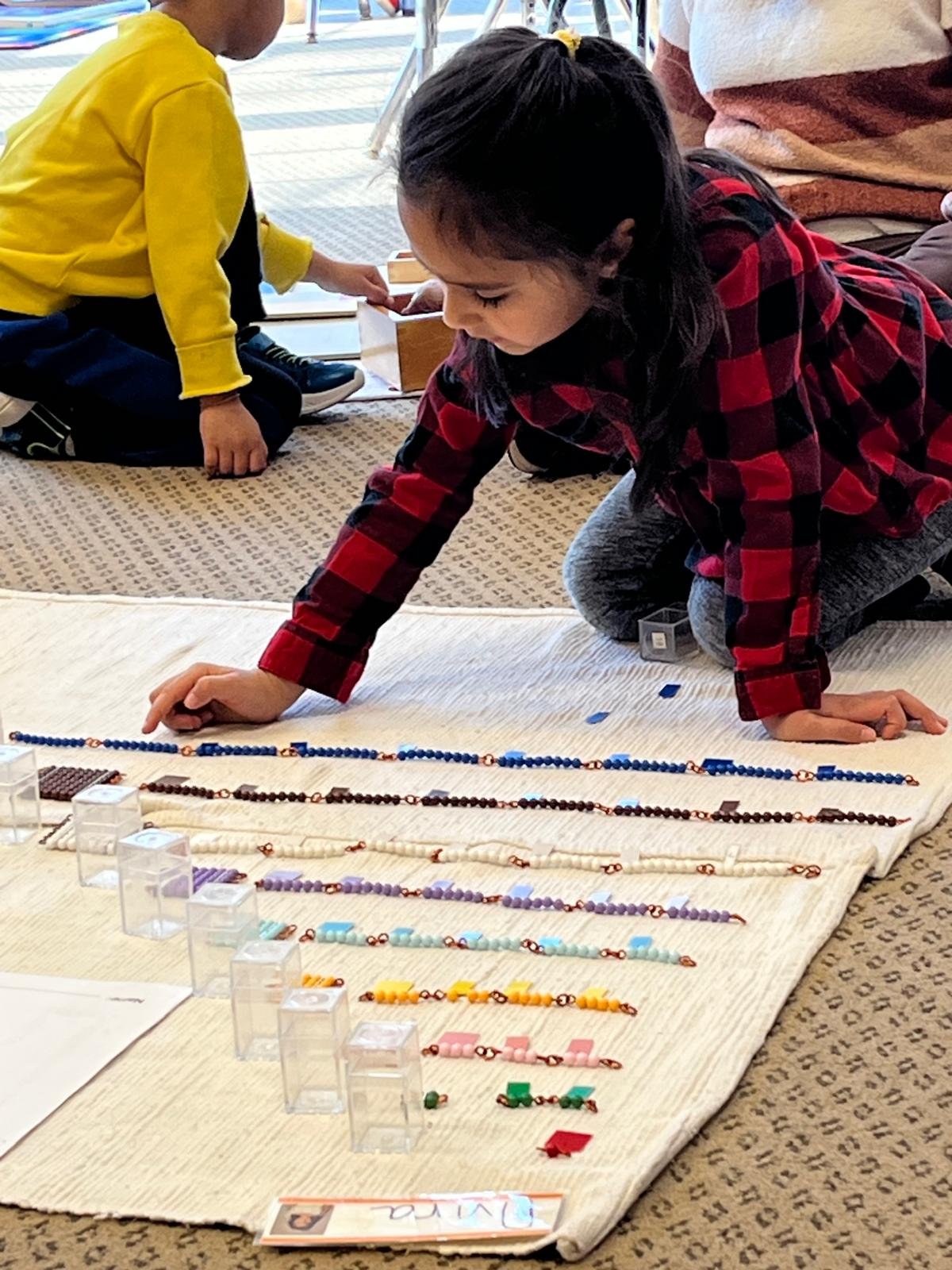

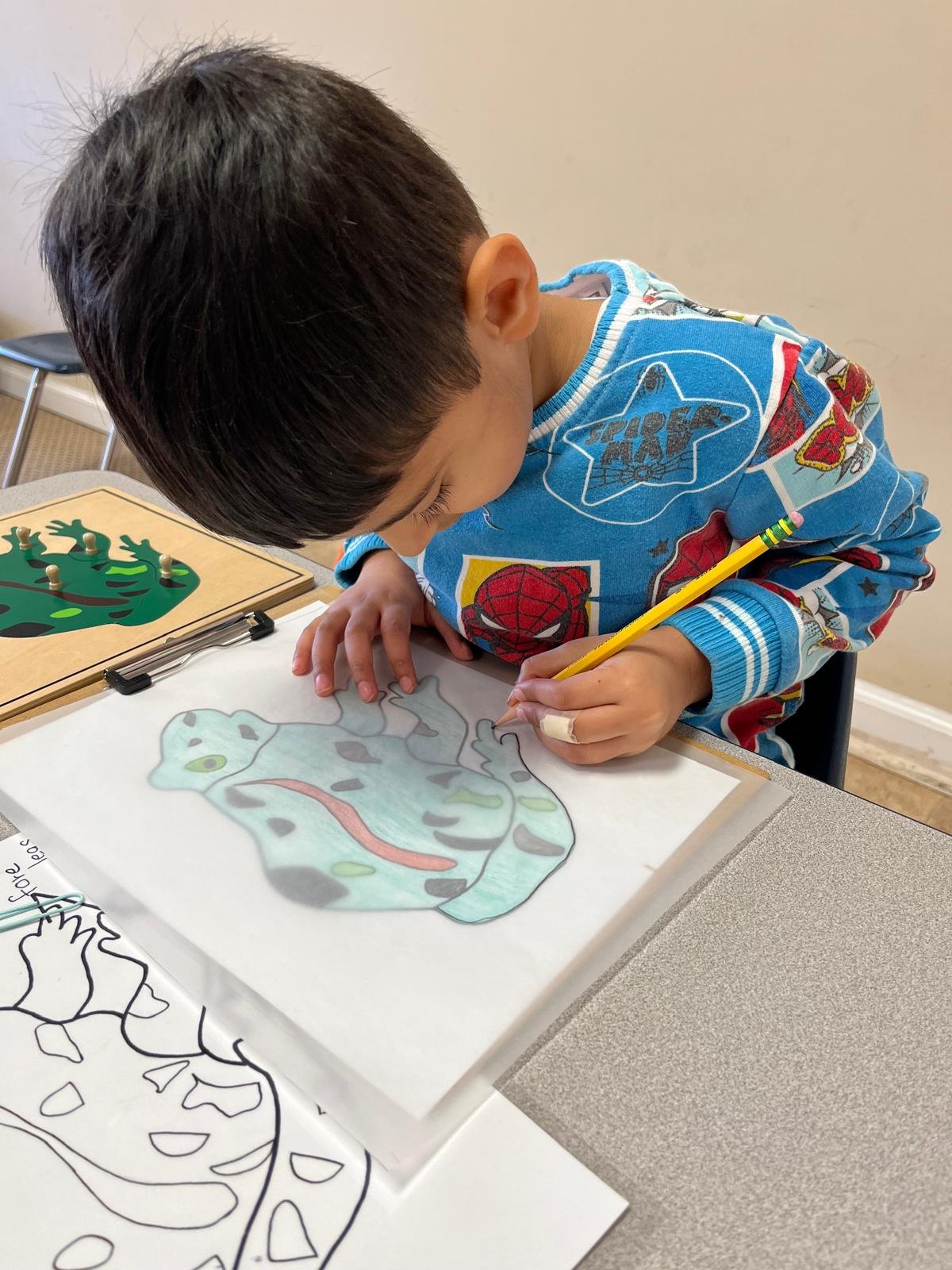
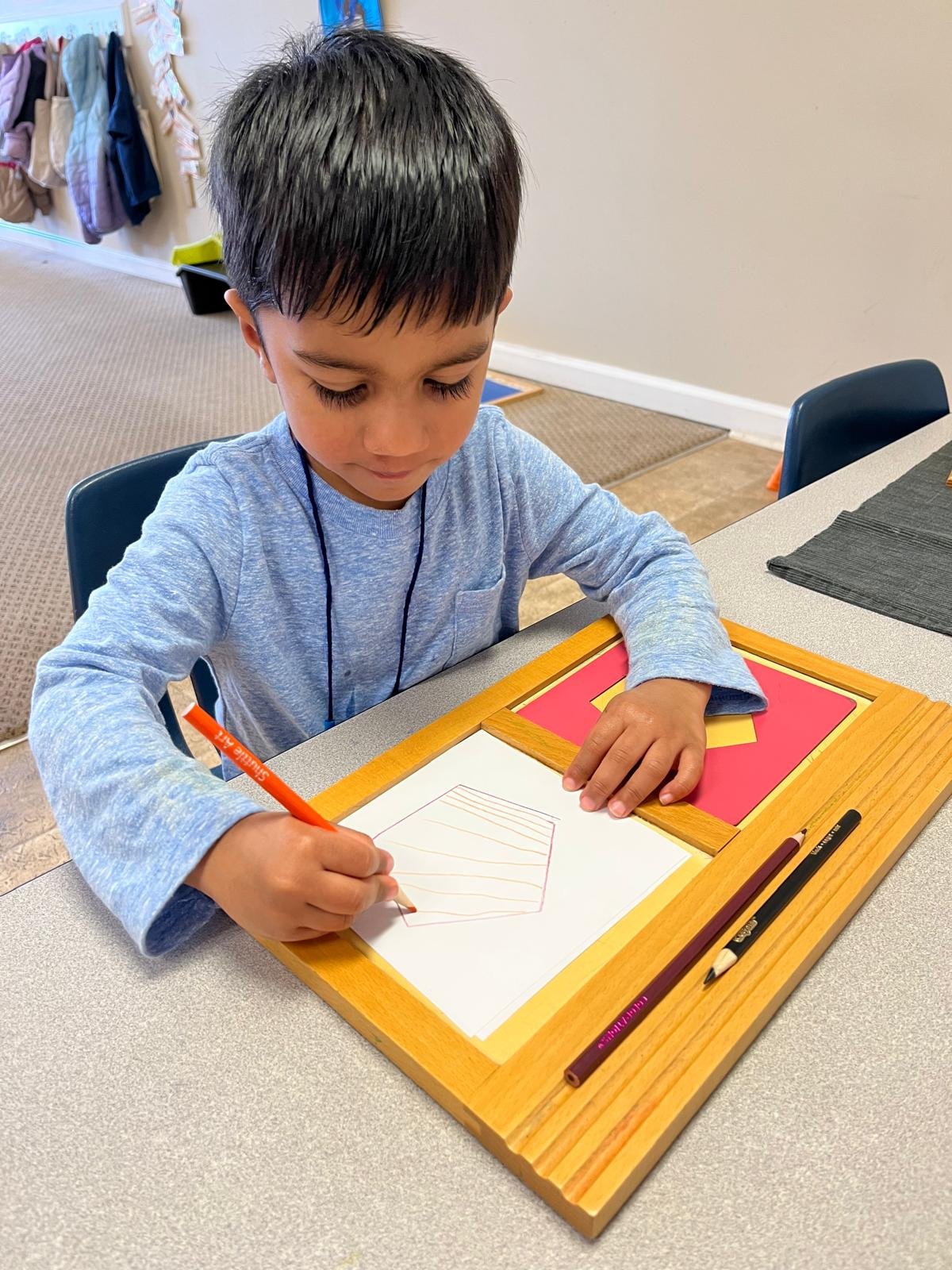
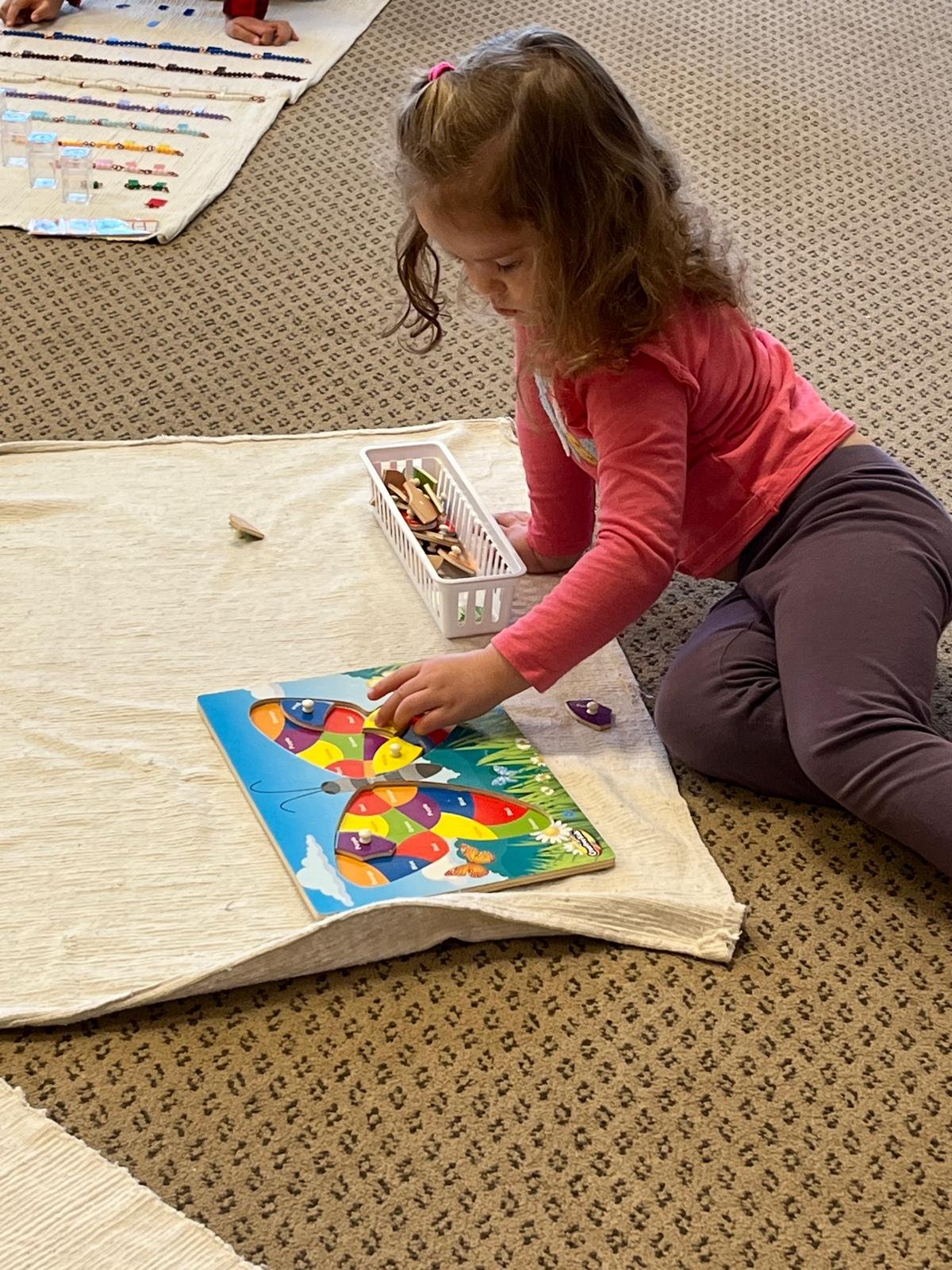
Contact Us!
Phone
(770) 619-0015
Location
11761 Jones Bridge Rd, Alpharetta, GA 30005




